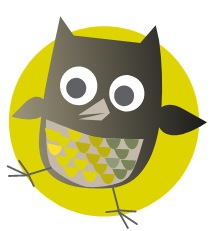Once your child has got over the hurdle of the first day, it will take them some time to adjust to their new routine. You can help them manage with our top four tips.
1. Be prepared for a very tired child
Even if your child is used to a long day at nursery, a school day can be exhausting. It’s a good idea not to plan too many activities for after school for the first few weeks. If your child seems really tired, you might want to bring bedtime forward until they adjust.
2. Check their book bag
While lots of schools communicate with parents by email or using special apps, important letters and forms from school are still sent home regularly. You might need to sign something, or organise fancy dress for a dressing up day. You might also find wrappers, discarded fruit and glitter-covered works of art lurking at the bottom of their bag.
3. Be ready for tears and tantrums
This doesn’t necessarily mean that there’s a problem, it’s just that all the excitement coupled with tiredness may mean that they need some extra attention and reassurance for a while. You might want to have a couple of treats in reserve in case your your child has a particularly tricky day while they are still adjusting.
4. Meet the teacher
It can be really helpful to meet and get to know your child’s teacher. This will help you understand what your child is learning in school, and what you can do to support them at home. This also makes it easier for either you or your teacher to bring up any concerns. If it’s not possible to meet face-to-face, try to arrange to speak on the telephone a few weeks into term.
Not all children develop at the same pace
If your child finds school a bit tricky to begin with, don’t panic, as they will get there in the end with your help and encouragement. Do let the school staff know about any concerns and that way they’ll be ready to help.
We have lots of advice and fun ideas to help your child learn:
You may be interested in:
Julia Donaldson’s Songbirds: My Phonics Story Collection
Read with Oxford
With a focus on building phonics skills, this collection contains 12 fun phonics stories to provide perfect practice for beginner readers. The kit also contains colourful stickers, and an alphabet chart to reward, motivate and build confidence.
Numbers and Counting up to 20 Age 4–5
Progress with Oxford
This activity book will help your child to learn to count and write numbers up to 20, to count on from a number, to count sequences and read number names. A lively character accompanies your child through all the colourful and engaging activities, while fun stickers and a progress chart are included to reward their work.



